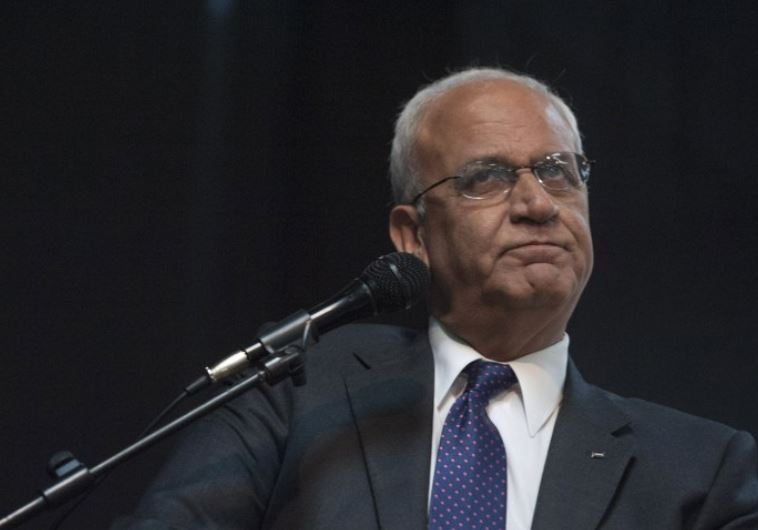Netanyahu looking for excuses to avoid peace with Palestinians, Erekat says
The chief Palestinian peace negotiator also refused to condemn terrorist attacks against Israelis.
 Saeb Erekat, the secretary-general of the Palestine Liberation Organization(photo credit: AFP PHOTO)Updated:
Saeb Erekat, the secretary-general of the Palestine Liberation Organization(photo credit: AFP PHOTO)Updated: